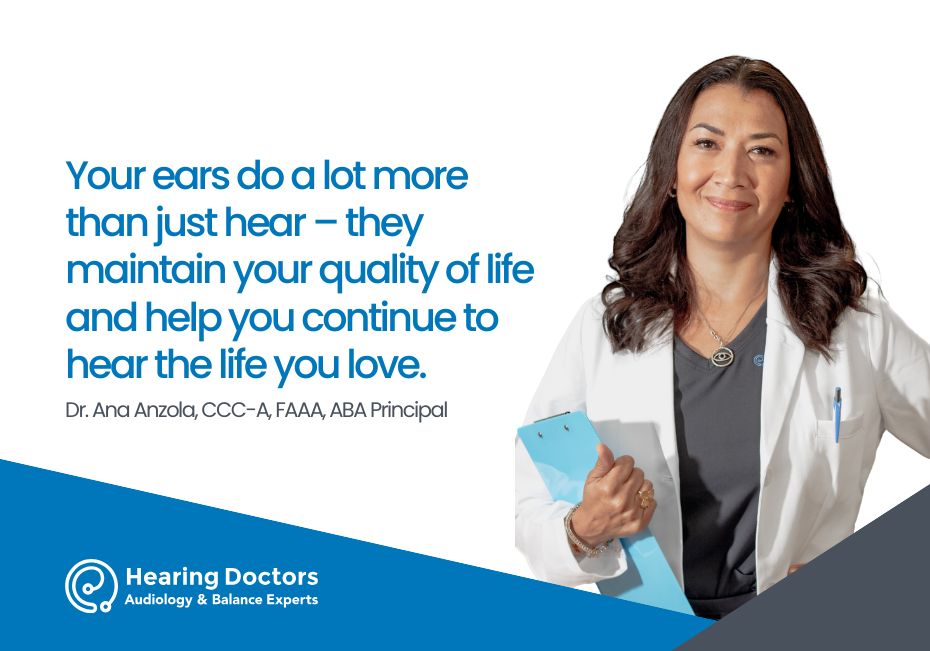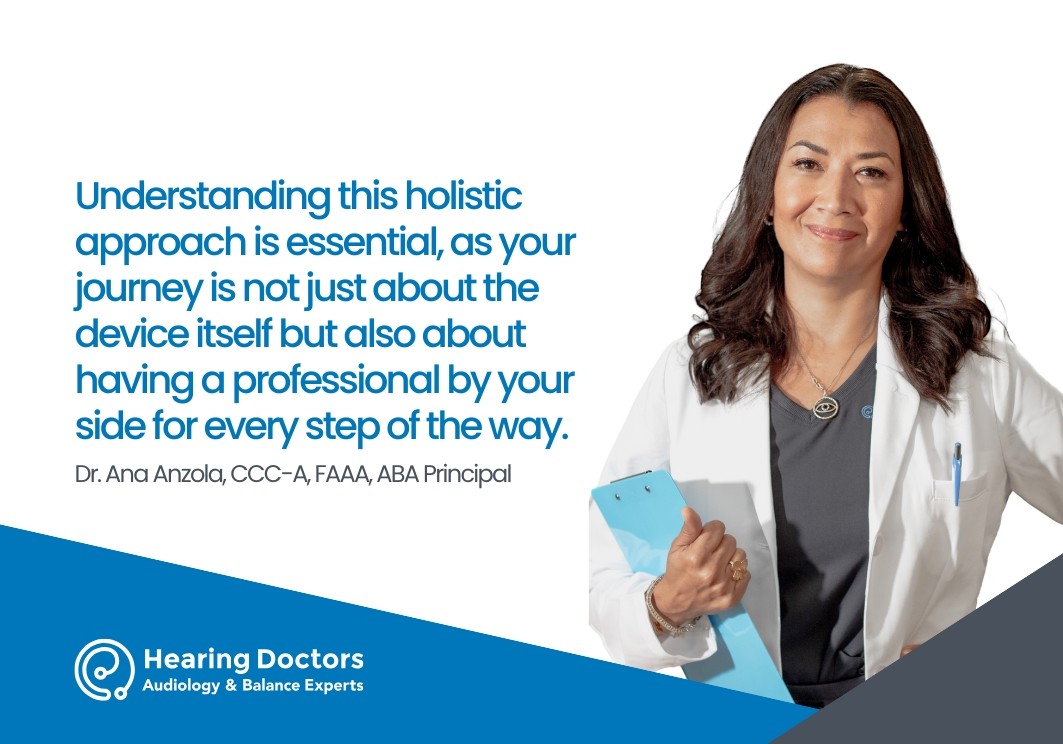Feb 21, 2022
Dr. Ana
Anzola, CCC-A, FAAA, ABA Principal
For the past few decades, as the effects of cardiovascular disease have wreaked havoc on North Americans, researchers have been looking at the link between heart disease and hearing loss, with some very interesting results.
Hearing Loss Can Indicate Cardiovascular Disease
We know that the inner ear – one of the key areas responsible for hearing – is very sensitive to blood flow. Research suggests that when blood vessels are injured and blood flow in the body is impaired – as is the case when cardiovascular disease is present – those abnormalities can be detected in the inner ear before they may be seen in other areas of the body. Taken further, this research would lead researchers to define hearing loss as an early risk factor for cardiovascular problems in the future.
Hearing Loss Is A New Risk Factor
In The Laryngoscope, researchers compared data from 1000 patients and found a significant link between low-frequency hearing loss and various forms of cardiovascular disease including stroke, coronary artery disease and history of a heart attack. This led the researchers to suggest that there is a link between low-frequency hearing loss should be considered a risk factor for cardiovascular events.
As Cardiovascular Health Improves, So Can Hearing
Further study published in the American Journal of Audiology found that poor cardiovascular health had negative impacts on hearing, and that as cardiovascular health improved – particularly in older patients – hearing improved also.
Other Health Effects Of Hearing Loss
We know that cardiovascular disease isn't the only concern when we talk about hearing loss, particularly in older adults. Other health risks associated with hearing loss include dementia, depression, sleep loss and loss of social engagement and relationships.
Early Detection Is Key
Given what we know about hearing loss, and what we are learning about the connection between hearing loss and heart health, it is more important than ever to work with a trusted audiologist check your hearing now, and regularly in the future, to ensure it is in good health and stays that way.
Early detection is one of the most important steps in maintaining good health, and our audiologists can not only help you determine if your hearing is impaired, but can work with you to get you the assistive listening devices you need to limit any negative effects of hearing loss and help you maintain a higher quality of life.
Talk To An Audiologist
The audiologists at Hearing Doctors are experienced in working with patients who have other risk factors along with potential hearing loss, and are committed to serving you to ensure your hearing and heart stay healthy for the long term.
Popular Blogs

Jun 3, 2025
Dr. Ana
Anzola, CCC-A, FAAA, ABA Principal
Understanding Types of Hearing Loss: Sensorineural, Conductive, and Mixed

May 21, 2025
Dr. Ana
Anzola, CCC-A, FAAA, ABA Principal
What Impact Is Artificial Intelligence Having on Hearing Aid Technology?

Apr 28, 2025
Dr. Ana
Anzola, CCC-A, FAAA, ABA Principal
Do You Think You’re Too Young for Hearing Loss?

Apr 15, 2025
Dr. Ana
Anzola, CCC-A, FAAA, ABA Principal
The Best Hearing Aids in 2025: Insights From a Doctor of Audiology


